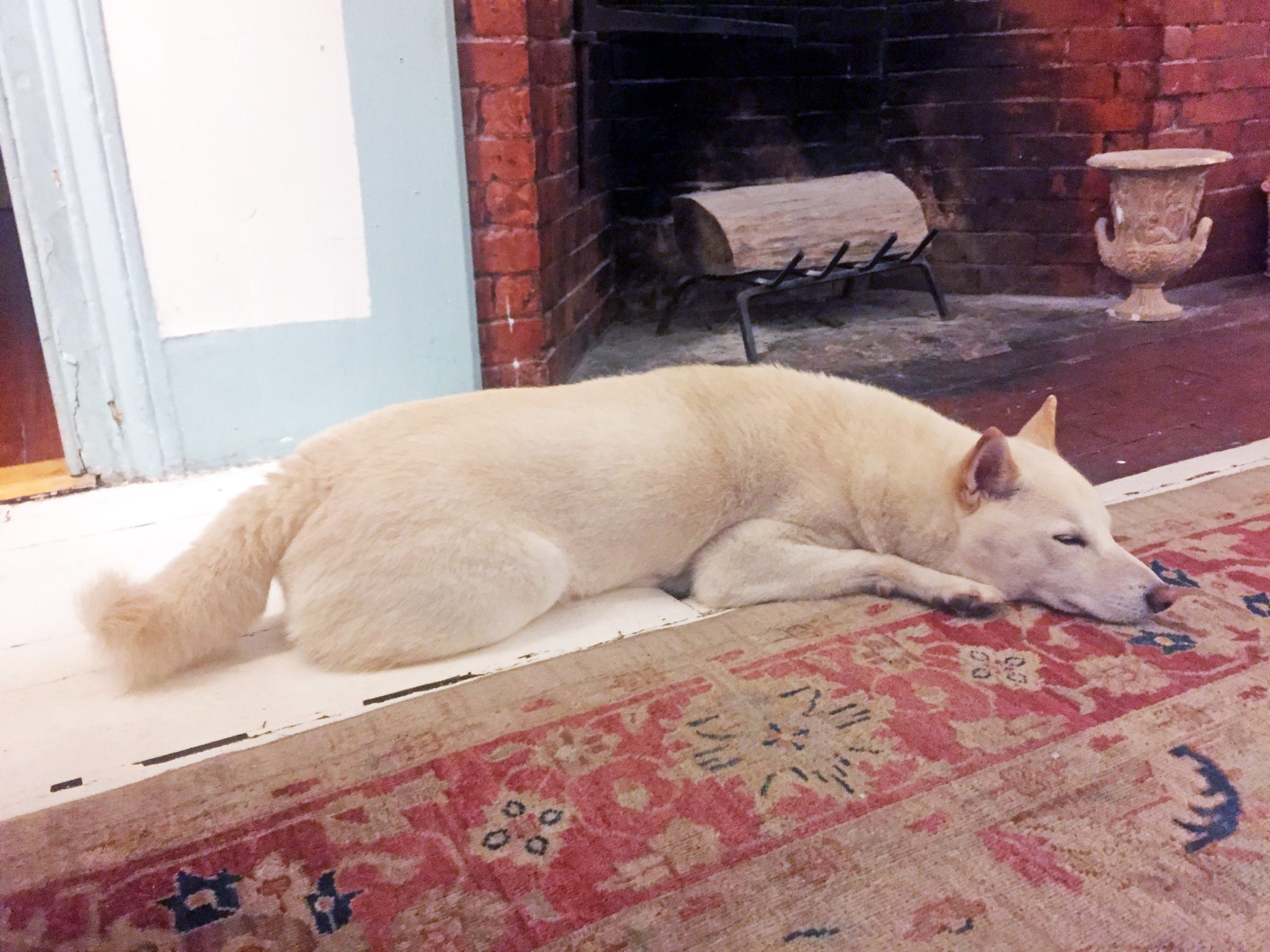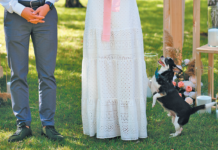
The night after I interviewed Tufts Animal Behavior Clinic Head Stephanie Borns-Weil, DVM, about the different things our dogs are saying to us when they bark (see the story starting on page 1), I dreamt that Franklin, Rosie, and I got caught in the rain — on the street where I grew up some 50 years ago. The two of them told me with their eyes that they didn’t want to get wet, so I took them to stand under a little awning at the front door of one of the row houses leading to my apartment building. But I could see pretty quickly that the rain, coming down hard, was not going to let up any time soon. “Come on, let’s just get home,” I said.
Back out into the driving rain we walked, and after a long block or so we were getting closer — to the apartment building I lived in early in my marriage, two states away from my childhood home. The rain was still coming down at a clip, and Franklin was very unhappy about it, so I put him around my shoulders the way a Greek farmer might carry a lamb.
This would be impossible to do in real life — he weighs more than 50 pounds, with bulk that’s different from, say, a child’s — but I wanted him to know I understood how uncomfortable he was about the wet weather. (He and Rosie don’t even like to wade in the cove near our home, the way other dogs do.) I was also glad to be able to do it because when Rosie gets tired on our long walks, I can just scoop her up and give her little kisses on the head as I carry her, and I always wonder if that makes Franklin feel bad.
When we reached the top of the hill, with Franklin still around my shoulders, Rosie said something to me — in English! — with the sweetest little voice. I forget what it was — maybe just something about the rain.
Then Franklin said something, also in a sweet voice.
I looked at him and said, “So you understand everything that’s going on?”
“Yes,” he said, in that same sweet tone.
I know the dream was about something Dr. Borns-Weil told me during our conversation, which is that, like us, dogs are trying to cultivate “a relationship across the species divide.” They’re trying to talk to us, share with us.
I also know that I feel guilty. Franklin always barks when I’m putting on their leashes to take them out, and I have always yelled at him for it, thinking, “Why are you ordering me around? You can see we’re going to go.” Of course, some part of me has known that he isn’t trying to command me — I can see how bright and shiny and happy his eyes look as he barks in readiness for our outings, and I can see the confusion as he looks back at me in worry when I speak harshly.
Thanks to Dr. Borns-Weil, and a wonderful book on the meaning of dogs’ different barks referred to in the article, I will never again yell at Franklin for barking. It was cruel of me to punish joy, and it’s not going to happen anymore. I hope you’ll make the same pact with me about your own dog.
Happy tails to you,
Lawrence Lindner
Executive Editor





